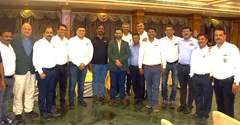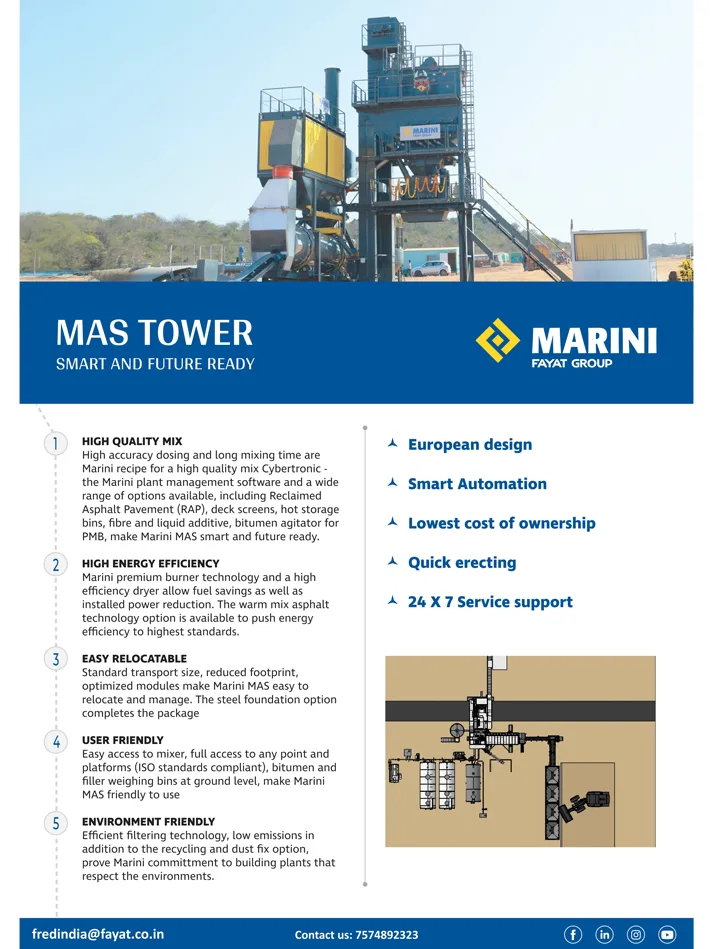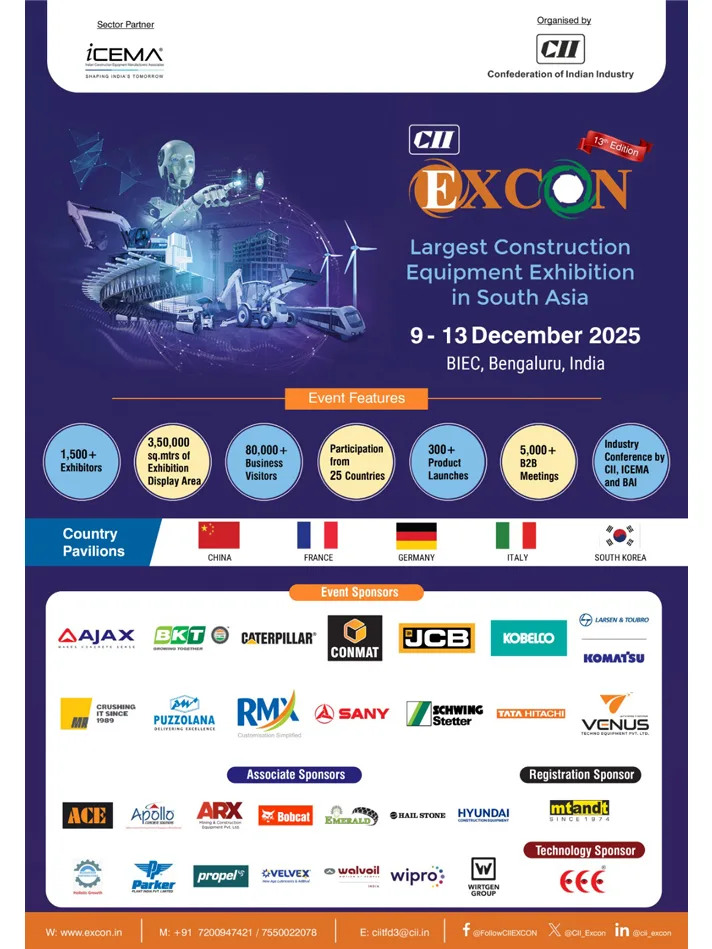Ahmedabad Airport Enhances Capacity with New Stands and Upgrades
Ahmedabad’s Sardar Vallabhbhai Patel International Airport in Gujarat has undergone significant enhancements recently. The latest upgrade includes the addition of five new parking stands at Terminal 2, boosting flight operations and aircraft parking capacity.
This expansion responds to the growing demand for air travel in Ahmedabad, increasing the airport’s parking stands from 13 to 18, accommodating commonly used domestic and some international airline aircraft.
The new stands create opportunities for airlines to expand their connections to Ahmedabad. Terminal 2’s expansion also involves the installation of four new aerobridges, bringing the total to eight. Additionally, the implementation of the Multiple Aircraft Ramp System (MARS) on four existing aerobridges optimizes stand usage.
With these advancements, Terminal 2 can now accommodate 18 Boeing 737/Airbus A320 aircraft commonly used by domestic and some international carriers, along with five wide-body aircraft like Boeing 777/787 or Airbus A359, and cargo aircraft like the AN 124, B744, and Beluga mainly operated by international airlines.
Terminal 2 is also prepared to handle Saudi Airlines’ B747-400 aircraft, particularly for Hajj Operations.
The increased capacity not only enhances passenger traffic but also improves operational efficiency to accommodate larger aircraft in the future. This development opens doors for international carriers to consider Ahmedabad for frequent technical halts alongside regular passenger flights.
Furthermore, Ahmedabad has welcomed a new twice-weekly direct cargo flight operated by Ethiopian Airlines, connecting the city to Addis Ababa.
K2 Infragen Secures Rs. 90 Crore Railway Bridge Contract in Chandauli, Uttar Pradesh
K2 Infragen, an engineering, procurement, and construction (EPC) firm, has secured a significant contract worth Rs. 90 crore for a railway bridge project in Chandauli, Uttar Pradesh. The project entails the construction of a four-lane rail over bridge (ROB) on the Patna-Mughalsarai portion of the Danapur division in Chandauli district.
According to a statement by K2 Infragen, the contract was won through a joint venture between Gangasagar Singh and PRL Infrastructure, with K2 Infragen entrusted with complete executional responsibility by the UP-State Bridge Corporation Ltd. The project is slated for completion within an 18-month timeframe.
Managing Director of K2 Infragen Ltd, Pankaj Sharma, expressed his optimism about the project, stating, “This order is estimated to contribute Rs. 35 crore to our revenues for the fiscal year 2024-2025.”
“The completion of this 4-lane ROB will significantly enhance the railway infrastructure of the Patna-Mughalsarai section and contribute to the developmental efforts aimed at modernizing the Indian Railways,” he further added.
L&T’s Power Transmission Business Secures Multiple Orders in India and Overseas
Larsen & Toubro (L&T), a leading engineering and construction conglomerate, announced on Wednesday that its Power Transmission & Distribution (PT&D) business has secured several significant orders, both in India and overseas.
In India, the business has been awarded contracts to set up two floating solar plants. Unlike traditional ground-mounted solar projects, floating solar plants involve mounting solar modules on structures that float on water bodies, such as reservoirs or lakes. This approach eliminates the need for land acquisition and generally requires less civil work. In addition to these benefits, floating solar plants can reduce water evaporation and have other site-specific advantages.
L&T’s PT&D vertical has also received orders to set up transmission lines and a gas-insulated substation to integrate solar energy zones in Rajasthan and Karnataka. These critical infrastructure projects will help in the evacuation and distribution of renewable energy to various load centers across India.
The company has further secured an order to build a gas-insulated substation overseas, specifically in the Sultanate of Oman. Oman is in the process of integrating its multiple standalone electricity networks into a 400 kV national grid. As part of this interconnection and grid-strengthening initiative, L&T has been tasked with building a 400 kV overhead transmission line and two 400 kV grid stations.
In the United Arab Emirates, L&T has also bagged orders to construct two substations with associated works. These projects reinforce the company’s growing presence in the Middle East and its commitment to providing comprehensive engineering solutions.
Agartala-Akhaura Railway Link and Maitri Setu to Begin Operations Soon
Tripura Chief Minister Manik Saha recently announced the imminent operationalization of the Maitri Setu and the Agartala-Akhaura Railway Link, marking a significant stride in regional connectivity and economic progress.
In discussions with reporters, CM Saha underscored the government’s dedication to upholding peace and stability in Tripura, a strategy that has successfully attracted numerous investors to the state. He emphasized that with recent elections concluded, a new government would soon assume office, continuing the trajectory of progress under Prime Minister Narendra Modi’s leadership.
“With PM Modi’s steadfast support for the Act East Policy and the implementation of the HIRA Model, the Maitri Setu is poised to become operational shortly,” stated Saha.
He continued, “The trial runs for the Agartala-Akhaura railway link have been successfully completed, paving the way for its imminent launch. This enhanced connectivity is poised to bring a plethora of opportunities, as evidenced by the increasing interest from investors. Just yesterday, I convened a meeting with potential investors, and the prospects for Tripura are indeed promising.”
Highlighting the transformative potential of these projects, Saha noted that once rail connectivity is fully established, travel to Kolkata will become significantly faster and more efficient.
The operationalization of the Maitri Setu and the Agartala-Akhaura Railway Link is anticipated to not only strengthen trade and commerce but also enhance socio-cultural ties between India and Bangladesh.
These infrastructure developments are seen as crucial to Tripura’s growth, positioning it as a key player in the northeastern region’s development narrative. As Tripura gears up for this new phase of connectivity and development, the state anticipates leveraging these advancements for a brighter and more prosperous future.
BMC Approves Reconstruction of Three City Bridges
In a joint meetingrecently, the Brihanmumbai Municipal Corporation (BMC) and officials from the Maharashtra Rail Infrastructure Development Corporation Limited (MRIDCL) approved the reconstruction of three city bridges: Curry Road Bridge, Matunga Bridge, and Mahalaxmi Bridge.
“The preliminary phase study of these bridge works is currently underway. Reconstruction of these bridges will help reduce traffic congestion and save time and fuel,” stated the BMC.
The BMC will cover the reconstruction costs, while MRIDCL will handle the actual construction work. During the meeting, progress on ongoing projects, including Ray Road, Byculla, Tilak (Dadar), and Ghatkopar bridges, was also reviewed. The BMC urged for expedited work on these bridges.
As of now, the Ray Road Bridge is 77% complete and is expected to open for traffic by November 2024. The Byculla Bridge is 42% complete, with an anticipated opening in October 2025. The Tilak Bridge has reached 8% completion, and the Ghatkopar Bridge is currently 14% complete. Meanwhile, the railway administration informed the BMC about the status of three other bridges: Olivant Bridge in Mazgaon, Arthur Bridge, and S Bridge at Byculla. According to a letter from Central Railway dated April 24, 2024, these bridges are in good condition and do not require reconstruction at present. A review of their condition will be conducted by the Railways in 10 to 15 years, with further action to be based on that review. Consequently, no immediate work on these bridges will be undertaken, the BMC noted.
CM Expedites Pending Rail Projects under Mahayuti Alliance
Chief Minister Eknath Shinde recently asserted that several railway projects, which had been stagnant during the MVA regime, accelerated once the Mahayuti alliance came into power.
Shinde stated, “The previous government hesitated to cover 50% of the project costs, despite the Centre’s readiness to contribute the remaining 50%. However, we promptly committed to our share.” Key projects, including the construction of an additional track between Nashik and Mumbai, as well as the Nashik-Pune semi-speed rail corridor, have experienced renewed momentum, Shinde announced during a meeting with industry representatives in Nashik city. Highlighting the government’s focus on infrastructure, Shinde mentioned ongoing projects worth Rs 8 lakh crore, emphasizing their role in enhancing communication networks to attract investors.
Taking a swipe at the previous MVA government, Shinde questioned the security environment for investors, referencing the 2021 incident involving gelatin sticks found near billionaire Mukesh Ambani’s residence, Antilia, in south Mumbai.Shiv Sena’s chief also underscored the progress of the Mumbai-Nagpur Samruddhi Expressway and outlined plans for a network of access-controlled roads to facilitate eight-hour travel across the state.
Furthermore, Shinde assured representatives from the real estate sector that Nashik’s development will be prioritized on par with Thane.
MMRDA Commences Metro Line-12 Pillar Construction in Kalyan and Dombivli
The Mumbai Metropolitan Region Development Authority (MMRDA) is swiftly advancing the construction of the Kalyan to Taloja Metro Line 12, marking significant progress with the commencement of work in Kalyan. Excavation activities have kicked off near the APMC market in Kalyan (West) and multiple locations in Dombivli, laying the groundwork for the installation of Metro pillars.
With an estimated budget of Rs. 5865 crores, the project recently initiated its construction phase in Dombivli. In February, Chief Minister Eknath Shinde inaugurated the project with a groundbreaking ceremony, heralding the beginning of Metro Line 12’s development. Following the ceremony, work swiftly commenced, quickly expanding from a single location in Dombivli to include the APMC market road in Kalyan and various other sites in Dombivli.
Spanning a distance of 22 kilometers, the route is set to encompass 19 stations upon completion. Eknath Shinde expressed optimism about the project, stating, “Once this metro line starts, two and a half lakh passengers will benefit from it on a regular basis, and this will also reduce crowding on local trains between Kalyan and Thane.”
GE T&D India Wins Major Contract from Power Grid Corporation
GE T&D India Ltd., a subsidiary of GE Vernova’s electrification business, has been awarded a contract by Power Grid Corporation of India Ltd (PGCIL) to construct a State Transmission Asset Management Centre (STAMC) in Odisha. This project, undertaken for Odisha Power Transmission Corporation Limited (OPTCL), aims to enhance grid operations through advanced technology.
The STAMC is designed to enable OPTCL to operate the grid with real-time monitoring and control, providing greater efficiency and reliability. Once completed, the substations in Odisha will be remotely managed using advanced grid software solutions, including supervisory control and data acquisition (SCADA), video monitoring, remote accessibility, and automated fault analysis systems. These technologies will be installed at four key locations across the state.
Sandeep Zanzaria, Managing Director and CEO of GE T&D India, commented on the project, stating, “Our innovative STAMC will help empower PGCIL and OPTCL to optimize their grid operations, continue to integrate renewable energy sources more effectively, and ultimately contribute to a smarter, more resilient, and sustainable grid for the future.”
The advanced features of the STAMC are expected to bolster Odisha’s grid infrastructure, allowing for more efficient control and quicker response to faults. This aligns with India’s broader push towards integrating renewable energy sources and modernizing the country’s power grid. With GE T&D India’s technology, the Odisha grid will be positioned to meet future demands and contribute to a more sustainable energy landscape.
448 Infrastructure Projects Face Cost Overruns Totaling Rs. 5.55 Lakh Crore in Q3
An official report has revealed that 448 major infrastructure projects in India, each with an investment of Rs. 150 crore or more, encountered cost overruns totaling over Rs. 5.55 lakh crore during the third quarter of the fiscal year 2023-24. The data is part of the Quarterly Project Implementation Status Report (QPISR) on Central Sector Projects, released by the Ministry of Statistics and Programme Implementation. The QPISR contains details on 1,897 projects costing Rs. 150 crore and above. Of these, 448 projects have a cost overrun of Rs. 5,55,352.41 crore, which accounts for 65.2 percent of their sanctioned cost. However, when compared to the latest approved cost, 292 projects reported a cost overrun of Rs. 2,89,699.46 crore. Additionally, 276 projects were found to have both time and cost overruns. The report indicated that 56 projects were ahead of schedule, 632 were on schedule, and 902 were delayed with respect to their original completion timelines. In some cases, either the original or anticipated completion date was not reported or had lapsed, affecting 307 projects.
The report also noted that the anticipated completion cost for these 1,897 projects is estimated at Rs. 31,74,489.91 crore. As of December 31, 2023, the total expenditure on these projects was Rs. 16,89,400.92 crore, representing 53.22 percent of the anticipated completion cost and 63.9 percent of the original cost. The total outlay allocated for these projects in 2023-24 is Rs. 3,70,983.54 crore.
The percentage of delayed projects decreased from 56.70 percent in the quarter ending December 2022 to 47.55 percent in the third quarter of FY24. The percentage of cost overruns dropped from 21.42 percent to 20.1 percent.
Key reasons for time overrun, as reported by various project implementing agencies, include delays in land acquisition, obtaining forest and environment clearances, and law and order issues. The report also pointed to state-wise lockdowns due to Covid-19 in 2020 and 2021 as contributing factors in the delay of project implementation. While the cost overruns due to general price escalation could not be entirely avoided, the report suggested that cost escalation due to delays could be minimized through improved project management and oversight.
Adani, GMR, and Fairfax Enter Pre-Bid Stage for Development of Puri Airport
Three major companies, Fairfax, Adani Group, and GMR, have shown interest in developing a new Rs. 2,203-crore greenfield airport near Sipasarubali in Puri, Odisha. This development is part of a public-private partnership (PPP) tender issued by the Odisha Industrial Infrastructure Development Corporation (IDCO) in February.
During the second pre-bid meeting held recently, representatives from these companies discussed various aspects of the project, including the completion timeline, regulatory permissions, and fee structure. “This was the second round of the pre-bid. The meeting was attended by representatives from Adani Airports, Fairfax, and GMR Group, among others who expressed interest,” said sources. IDCO plans to respond to the queries raised by these companies, and the final bid submissions are due on June 4, with openings scheduled for June 5.
The proposed airport is designed to handle 4.6 million passengers per annum (MPPA) in its initial phase, with expansions to 10.18 MPPA in phase 2 and an additional 16.69 MPPA in phase 3. IDCO confirmed that the airport could be developed as an international hub in its first phase, subject to regulatory approvals. Additionally, the site for the new airport covers approximately 1,184 acres, with 100 acres designated for city-side development.
Notably, Adani Group, Fairfax, and GMR control a significant portion of India’s airports. Adani Group operates airports in Mumbai, Ahmedabad, Lucknow, Mangaluru, Jaipur, Guwahati, and Thiruvananthapuram. Fairfax holds a majority stake in Bangalore International Airport Ltd, while GMR operates Delhi International Airport, Hyderabad International Airport, and Manohar International Airport in Goa.
An official from Odisha’s commerce and transport department noted that the airport’s location near Puri’s famous Jagannath Temple and other tourist attractions could bolster the city’s tourism potential. Additionally, the airport could support the growing demand from international investors and further position Puri as a significant player in India’s trade and commerce.
The major airport in Odisha, Bhubaneswar airport, has already seen a 26.6% increase in passenger demand in FY24, indicating the growing need for expanded air connectivity in the region.
District to Gain Five Additional Water Metro Terminals by September
Kochi Water Metro, which celebrated its first anniversaryrecently, is set to e
xpand its network by opening five additional routes in the city and suburbs by September. This significant expansion aims to enhance connectivity and accommodate the growing demand for water transport in the region. Kochi Water Metro Limited (KWML) announced that it will open new routes to Kumbalam, Paliyamthuruth, Willingdon Island, Kadamakkudy, and Mattancherry. The terminals in these areas are under rapid construction, with services expected to commence by September, once Cochin Shipyard Limited (CSL) delivers five more boats to KWML. The country’s first water metro service began operations on April 25, 2023, with nine electric hybrid boats manufactured by CSL. In its inaugural year, the service transported over 19.72 lakh passengers across its initial two routes. Currently, the Water Metro operates on six routes, including the newly opened High Court-Fort Kochi route.
As a unique concept, the Water Metro has attracted many tourists visiting Kochi, eager to explore the backwaters. However, KWML plans to focus on encouraging local commuters, particularly island residents, to use the Water Metro for daily transport. The use of travel passes enables regular passengers to travel for as little as Rs. 10, offering a more cost-effective alternative to buses, which typically cost between Rs. 20 and Rs. 40.
To attract more daily commuters, KWML is working to improve first and last-mile connectivity, facilitating easier access to and from Water Metro terminals. Plans are underway to introduce electric buses and e-auto rickshaws as feeder services, connecting metro stations with water metro terminals
Despite these expansion efforts, the limited number of boats remains a challenge for increasing services. Kochi Metro authorities have issued tenders for 15 additional boats, with the first phase order comprising 23 boats from CSL. CSL has already delivered 14 boats to KWML, with more expected by September.
In celebration of the first anniversary, KWML Managing Director Loknath Behra traveled on the Kochi Water Metro with notable guests, including actor Mia George, environmentalist Murali Tummarukudi, and professor M K Sanoo, showcasing the Water Metro’s achievements and ongoing efforts to expand its reach and impact.
Grew Energy Wins 200 MW in SECI Solar PV Module Auction
Grew Energy has achieved a significant milestone by securing the largest share of the Solar Energy Corporation of India (SECI) 400 megawatt (MW) tender for solar photovoltaic (PV) modules. The tender, released in December 2023, encompasses testing, packaging, forwarding, supplying, and transporting solar PV modules as specified by SECI guidelines.
The company will be responsible for delivering 200 MW of solar PV modules, the largest portion of the tender. The product and its spare parts will be delivered over a nine-month period, with locations varying across the nation. The tender requires uniform size and crystalline technology for all solar PV modules.
Grew Energy CEO Vinay Thadani expressed confidence in the company’s capacity to fulfill the mandate. He highlighted that Grew Energy is among a select group of manufacturers capable of supplying domestically made solar PV modules using domestically manufactured solar cells.
The tender’s bid price has been set at Rs. 22.66 per Watt peak (WP), which applies to all three bidders, thereby establishing a standardized rate for the supply of solar PV modules. This standardized rate sets a benchmark for future solar tenders and emphasizes the preference for locally produced solar technology.
Grew Energy COO Hardip Singh stated, “We are confident that we will not only be able to meet the manufacturing requirements but also achieve the delivery deadlines successfully. Our aim is to soar high in India’s renewable energy sector and be direct contributors in making India self-sufficient and become world leaders in providing sustainable solutions to mankind.”
With this tender, Grew Energy is poised to play a significant role in India’s renewable energy sector, contributing to the country’s sustainability goals and reinforcing India’s position as a leader in the global solar industry.
Pune’s RSIIL Lands Rs. 4,900 Crore Contracts from MSRDC
Roadway Solutions India Infra Limited (RSIIL), a demerged entity from Roadway Solutions India Private Limited (RSIPL), has secured two significant infrastructure projects from the Maharashtra State Road Development Corporation (MSRDC) amounting to Rs. 4,900 crore. The projects, announced recently, are poised to enhance Pune’s connectivity and alleviate traffic congestion. RSIIL confirmed its status as the lowest bidder for these projects through an official statement.
With these new additions, RSIIL’s order book has now surged past Rs. 11,000 crore, as disclosed in the statement.
One of the projects entails the construction of the Access Controlled Pune Ring Road in Pune district, stretching from Village Lonikand to Village Walti in Maharashtra on an Engineering, Procurement, and Construction (EPC) basis. This project holds a value of Rs. 2,251 crore.
The second project involves the construction of the Access Controlled Expressway Connector to Hindu Hrudaysamrat Balasaheb Thackeray Maharashtra Samruddhi Mahamarg from Jalna to Nanded in Maharashtra.
Furthermore, RSIIL is actively engaged in executing three significant packages along the Vadodara Mumbai Expressway in Packages 8, 9, and 10, according to the statement.
In a strategic move earlier in March, Mauritius-based AG Dynamic Funds Limited, focused on India, signed a memorandum of understanding to make a strategic investment in RSIIL. This investment aims to expedite growth and fortify RSIIL’s market presence in road construction and development.
Adani Solar to Expand Operations in Kerala
Adani Solar announced plans to expand its operations in Kerala, recognizing the state’s significant potential in the solar energy market. As part of this expansion, the solar PV manufacturing arm of the Adani Group signed a Memorandum of Understanding (MoU) with Kochi-based Almiya Group, a well-known solar distributor, to be its official partner in the state.
Adani Solar will install a 225 MW solar power plant in Purapura within the next year and has established a warehouse in Coimbatore to ensure faster delivery of solar panels in both Kerala and Tamil Nadu.
“We are expanding our business in Kerala. In 2023 alone, we established solar panels for 70 MW in the state. Kerala has immense potential in the solar energy market, and the Adani Group has substantial plans for this region,” said Cecil Augustine, National Sales Head of Adani Solar, at a press conference.
Augustine highlighted the superior quality and higher production capacity of Adani’s Indian-made solar panels compared to others available in the Asian market. He stated that the partnership with Almiya Group will enhance Adani Solar’s market penetration in Kerala. Almiya Group has previously collaborated with Adani Solar on a 45 MW plant in Tamil Nadu.
Augustine also noted that Adani Solar holds a 50% market share in India’s residential solar panel market. He emphasized the affordability and efficiency of residential solar units in Kerala, estimating that an average family can install a unit for around Rs. 1.6 lakh, potentially reducing their power bills to nearly zero. The solar panels come with a 30-year warranty.
Additionally, Augustine mentioned that the Adani Group is exploring the use of solar energy at the Vizhinjam International Sea Port, currently under construction by Adani Ports.
Uttar Pradesh Government Aims for $2 Billion Investment in Civil Aviation.
The Uttar Pradesh government is setting its sights on attracting private investment of over $2 billion (Rs. 16,000 crore approximately) in the civil aviation sector. Alongside promoting ancillary activities such as aviation training, aircraft maintenance, and aero-sports, the proposed investment will likely be utilized to develop and upgrade existing airstrips across the state.
A senior government official emphasized, “The state is focusing on facilitating the optimum utilization of existing infrastructure and investment in strategic areas.” Currently, 14 state-owned airstrips have been earmarked for immediate development. Additionally, steps are being taken to operationalize 225 routes under the Regional Connectivity Scheme (RCS), a flagship initiative.
The state’s plan involves upgrading airstrips and infrastructure in a phased manner. “Six airstrips including Aligarh, Azamgarh, Chitrakoot, Shravasti, Moradabad, and Sonbhadra are being upgraded to handle flights under the RCS,” the official added.
Key to enabling civil aviation growth is the government’s airstrip policy, which aims to provide optimal incentives for private players, particularly in aero MRO (maintenance, repair, and overhaul) operations. For fiscal year 2024-25, the state has allocated a budget of approximately Rs. 28,000 crore for civil aviation infrastructure, covering airstrip modernization, land acquisition, and related initiatives. The state has witnessed a significant surge in air travelers, with a 20% increase in the number of flyers recorded in fiscal year 2023-24, indicating robust growth in both leisure and business tourism. Identifying tourism as a priority area, the Yogi Adityanath government is actively promoting helicopter taxis in major tourist destinations under the public-private partnership (PPP) model. Last year, UP Tourism inked an agreement with Rajas Aerosports And Adventures to operate heliports for 30 years between Agra and Mathura.
With tourist inflow soaring by 50% to 480 million in 2023, Uttar Pradesh has emerged as a highly favored tourist destination, aligning with the government’s ambitious tourism goals.
Reliance Industries to Start Construction on India’s First Multimodal Logistics Park Near Chennai
Twelve years after its conception, India’s first Multimodal Logistics Park at Mappedu near Chennai is set to begin construction in June, spearheaded by Reliance Industries. In 2022, Reliance won the Rs. 1,424 crore bid for the project, securing 184.27 acres of land in Tiruvallur district, edging out Adani Group.
The logistics park aims to offer efficient, cost-effective, and value-added logistics services such as cargo aggregation and disaggregation, distribution, intermodal transfer, sorting, packing, and repacking. Initially, the project faced delays due to connectivity issues and a lack of private sector interest.
Prime Minister Narendra Modi laid the foundation stone on May 26, 2022, after the Centre awarded the contract to Reliance. However, construction was delayed due to local road access issues, which have now been resolved, allowing work to commence in June.
The project stems from a Memorandum of Understanding signed in October 2021 among the Tamil Nadu Industrial Development Corporation, National Highways Logistics Management Limited, and the Chennai Port Trust. Situated 52 km from Chennai Port, 80 km from Ennore Port, and 87 km from Kattupalli Port, the logistics park is poised to become a crucial logistics hub for the southern region. It is projected to handle approximately 7.17 million tonnes of cargo over 45 years.
A pre-feasibility report indicates the park will serve secondary market clusters in Ranipet, Ambur, Tirupur, and Bengaluru, areas known for industries such as leather, heavy machinery parts, automobiles, cement, sugar, and chemicals. Additionally, it is strategically located near the automobile and electronics manufacturing clusters along the Sriperumbudur-Oragadam industrial belt and the Chennai Peripheral Ring Road.
The project’s success, however, hinges on establishing rail connectivity from Mappedu to the ports, according to sources.
Thiruvananthapuram International Airport Attains Zero Waste to Landfill Milestone
Thiruvananthapuram International Airport has reached a significant milestone by becoming the inaugural airport in India to receive the Zero Waste to Landfill (ZWL) accolade.
The prestigious recognition, bestowed by the Confederation of Indian Industry (CII-ITC) Centre of Excellence for Sustainable Development, underscores the airport’s outstanding waste management practices and unwavering commitment to sustainability. The ZWL assessment affirmed that Thiruvananthapuram International Airport has implemented exemplary waste management strategies, achieving an impressive 99.50 percent diversion of waste from landfills. Notably, the airport has successfully diverted 100 percent of its plastic waste and municipal solid waste (MSW), including both wet and dry waste, away from landfills.
This remarkable feat was made possible through the implementation of a robust value chain system and adherence to the 5R principles of sustainable waste management—Reduce, Reuse, Reprocess, Recycle, and Recover. These principles guided the airport in minimizing waste generation and maximizing waste diversion.
The ZWL initiative aims to divert at least 99 percent of generated waste from landfills while prioritizing waste reduction. During the assessment for the financial year 2022-2023, major sources of waste such as paper, cutlery, food, and road waste were meticulously scrutinized, all contributing significantly to municipal solid waste.
Thiruvananthapuram International Airport’s commitment to environmental stewardship is further underscored by its ISO 14001:2015 certification, which mandates a comprehensive Environmental Management System (EMS). This system sets and evaluates environmental goals, fostering a culture of continuous improvement and sustainability.
The airport has established a sophisticated waste management system in line with ISO 14001:2015 standards, encompassing waste segregation, recycling, monitoring, and reduction processes. Operating on a cradle-to-cradle principle, this system ensures sustainable waste management practices.
Designated collection sites for segregated waste, coupled with a recycling yard and recovery facility, ensure that all waste is appropriately processed and recycled, mitigating its environmental impact.
The accolade from the CII-ITC Centre of Excellence for Sustainable Development underscores Thiruvananthapuram International Airport’s steadfast commitment to environmental stewardship and innovative waste management practices. An Environment and Sustainability team continuously works to uphold and enhance the airport’s environmental performance, setting new benchmarks in sustainability.













